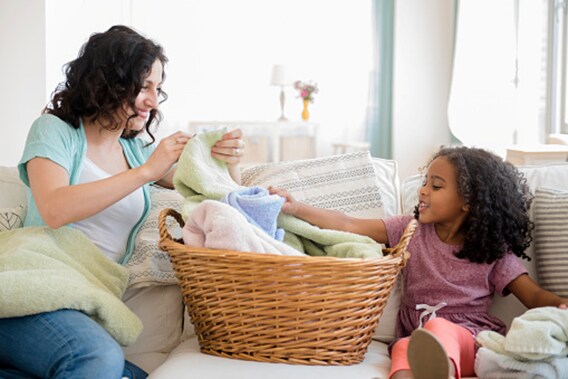Being organised involves skills that can be learned and practiced, just like anything else. Here are four top tips to get your kids started.
Is there a way to raise an organised kid? Can a child be taught to be organised or do they inherit these traits? Are some kids naturally messy while others are neat and tidy?
While some children have a more natural tendency to keep things in order, being organised is a trait that can be developed over time. Being organised can lead to productive habits and learning them early on will help your children develop the key practices that they’ll carry through life.
Here are our four top tips to
he
lp your kids develop their organis
ational skills.
1. Set the Example
Raising an
organised child requires you to model the behavio
u
r that you would like to see. Kids seek guidance first and foremost from their parents. From sorting
the laundry to cleaning up
piles of junk mail, they’ll pick u
p on how you organis
e yourself and then mimic you when they’re asked to clean up after themselves.
You can set the example by using
a three-tiered method: first start with a ‘do as I do’ approach wher
e you introduce an ideal organis
ational behavio
u
r, then move up to a ‘do as we do’ approach where you and the
child practice the ideal organis
ational behavio
u
r together, and finally
,
graduate to the ‘you do’ level where th
e child adopts the ideal organis
ational behavio
u
r independently.
2. Start Slowly
Make sure to keep it simple when you get going. Take it one step at a time and be sure kids know exactly what’s supposed to happen
at
eac
h step. For example, if you start with a cleaning task, divide it into clear sections. I
nstead of asking your chi
ld to clean up all
the
ir toys, work on individual tasks, such as organising
the blocks or putting away the dolls.
Make sure you have an established place for everything. If kids don’t know where something goes they won’t be able to put it away. Focus on easy, definitive activities and then be clear about how to complete them.
3. Make it Fun
Try to add a little fun to clean-ups, for example pick a favo
u
rite song to play when you’re doing the chores and singing along. You can
also make a game out of organis
ational challenges, like seeing how fast you can pick up puzzle pieces or Lego blocks. Bring the kids into the kitchen while you’re cooking and doing the dishes so that they get used
to watching the
cooking and clean-up process
.
Remember that learning a new skill takes time and practice. It’s important to be patient with kids as they’
re working on developing organisational habits. No one is perfect all the
time, b
ut
trying out these methods can help your kids get s
tarted on building
the early skills to stay organis
ed for life.
4. Form Habits
Your best bet for instilling life-long coordination prac
tices is to start early. Work
o
n small, age-appropriate organisational challenges
, like putting away toys or placing dirty clothes in a hamper, and then moving up to more advanced tasks, like helping with chores and sorting personal belongings.
Develop your children’s organisational skills by providing them
with
an easy-to-follow structure,
but
also
enough freedom to develop their own routines as they grow up. Sorting blocks will later b
ecome folding socks, and organis
ing colo
u
ring
books will later become organis
ing school books. Your aim is to lay the groundwork to set them up for success.
If you have
a
childcarer
or nanny
, ask them to follow the same advice.
Do you have any tips on how to raise an organised child
? Share your secrets in the comments section below.
